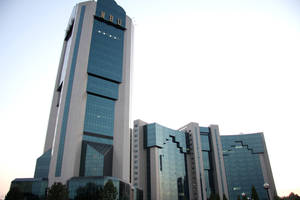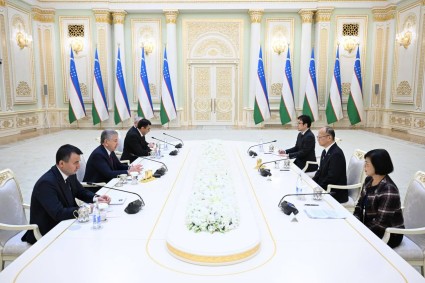Uzbekistan president Shavkat Mirziyoyev has agreed reform aimed at modernising the Tashkent Stock Exchange and increase its free float to 10% of GDP by 2025, FDI Intelligence said.
The president of Uzbekistan, Shavkat Mirziyoyev, has given the thumbs-up to a reform aimed at modernising the laws and rules that regulate the domestic capital market in order to boost its liquidity and capitalisation.
In a meeting with ministers and public agencies, Mr Mirziyoyev “directed to consolidate all relevant laws, acts and decrees into single, simple and flexible capital markets code by the end of 2020”, according to a press release from the Capital Market Development Agency (CMDA) on October 7. “In addition, he instructed to immediately remove all regulatory restrictions and barriers limiting foreign and domestic investors from freely investing in domestic securities, including government bonds, and actively participating in Uzbekistan’s capital markets,” it said.
Trading activity on the Tashkent stock exchange has been sluggish since its establishment in 1994. The market capitalisation of listed companies made up just 5.3% of GDP, way below the 21.7% of neighbouring Kazakhstan or the 34.8% of Russia, according to CMDA figures.
Additionally, the free float adjusted market capitalisation is basically nil (0.3% of GDP), highlighting the scarce liquidity of the securities traded on the exchange. Most of the stocks listed are state banks that are obliged to list on the exchange. Overall, only 2% of the shares of companies listed belong to foreign investors, CMDA figures show.
The current situation is a direct legacy of the Uzbek economy’s structure under late president Islam Karimov. His successor, Mr Mirziyoyev, has now established the CMDA and set in motion the market code reform as part of his efforts to modernise the economy and connect it to global markets and foreign investors.
The reform’s ultimate goal is to achieve a functioning capital market and grow its free float to 10% of GDP by 2025, thus attracting a diverse pool of market participants, from domestic corporates to local and foreign investors. The initial public offering (IPO) of 10 large state-owned enterprises is instrumental for the reform to gain traction and be successful.
The CMDA expects these IPOs to raise total market capitalisation by $13bn, and the free float by $1.3bn. Although the government has not disclosed yet a definitive list of the companies to be listed, state oil company Uzbekneftegaz would be top of any investor’s wishlist. The company is already undergoing restructuring and the management is “not excluding” some level of privatisation in the future.
In February 2019, Uzbekistan emerged from years of financial isolation when it issued its first ever $1bn eurobond on the global bond market, which established a yield curve for the former Soviet republic.
There have been rumours that domestic banks such as Uzbek Industrial and Construction Bank Joint-Stock Commercial Bank, Joint Stock Commercial Bank Asaka, SCM Ipoteka Bank and National Bank of Uzbekistan are about to tap the international bond market with their own eurobond programme. However, the CMDA is keen to encourage such companies to issue locally, to foster development of a domestic bond market and prevent the dollarisation of the Uzbek economy, which has been a lingering risk for since independence in 1991.













